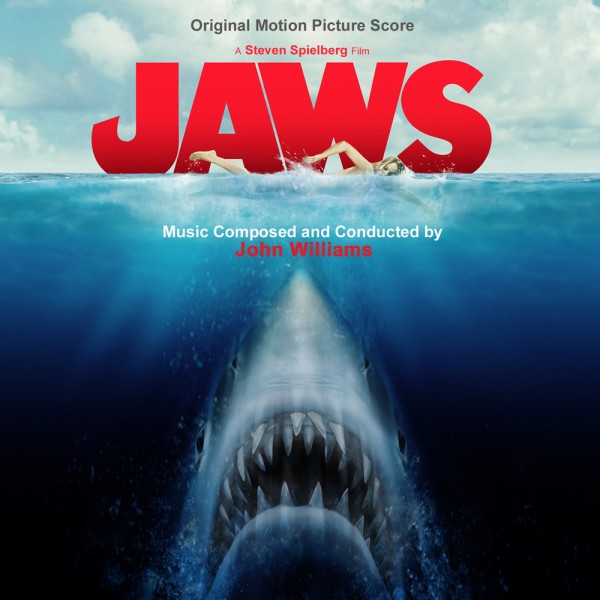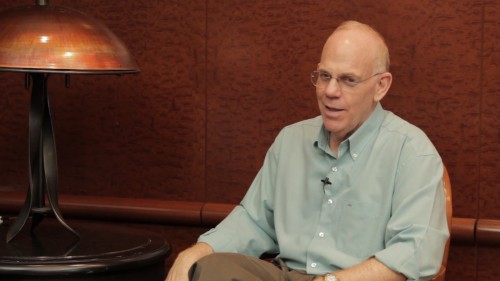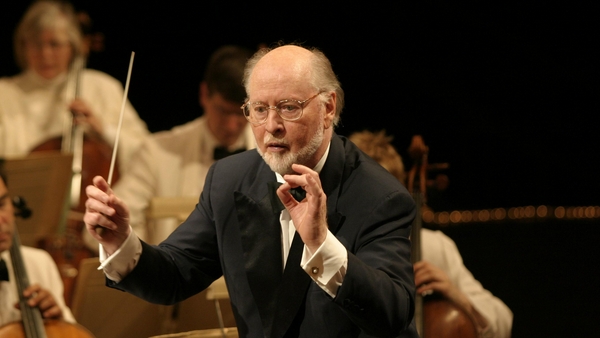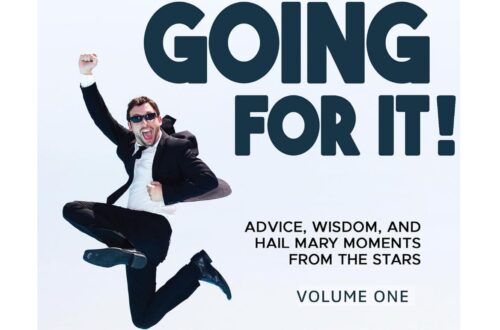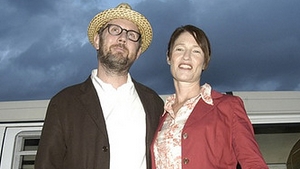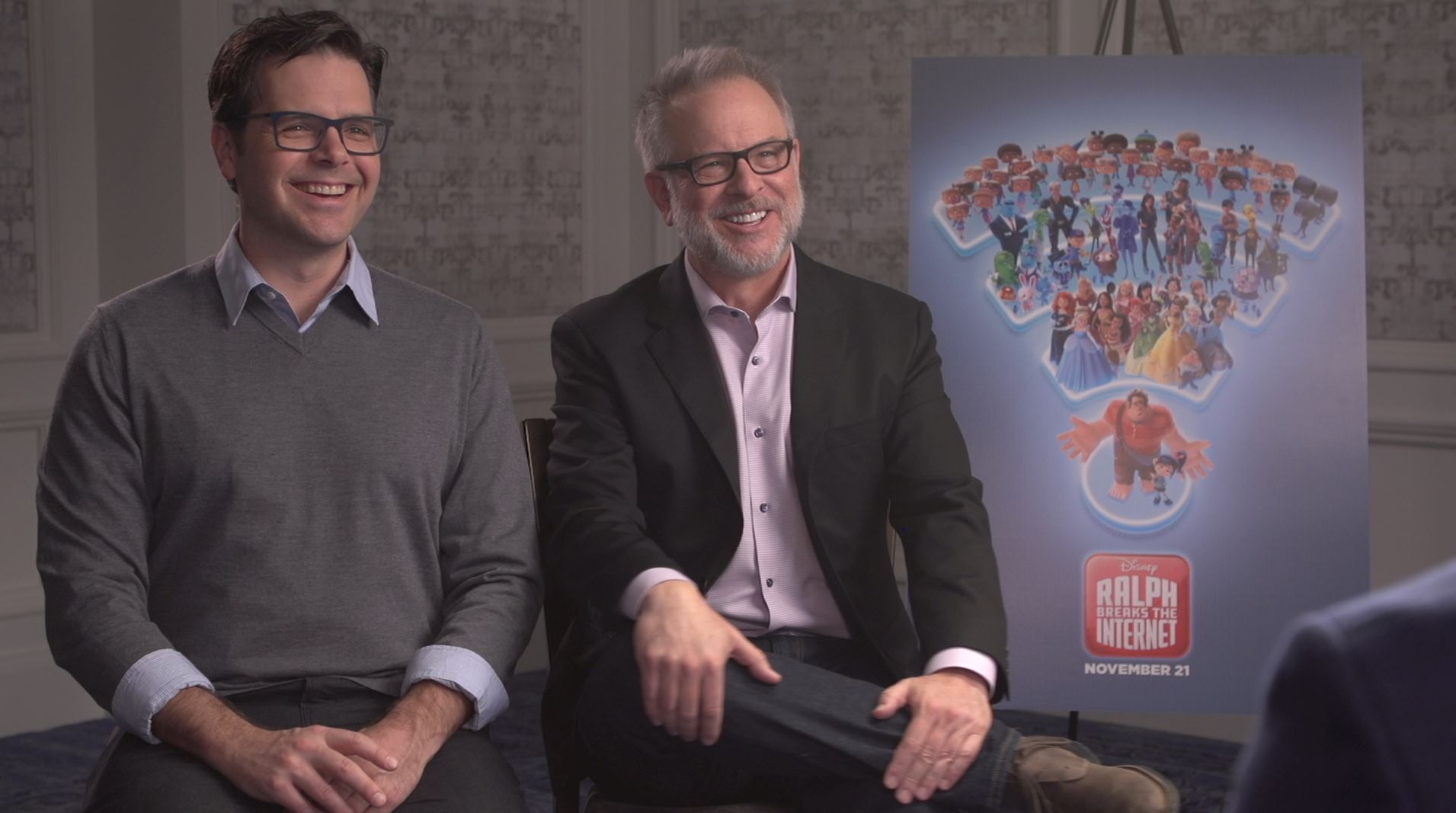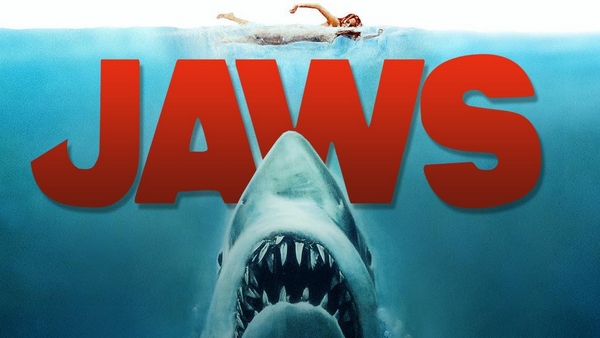 Richard Kaufman is, and has been, a good friend of the site. Thanks to our contacts at the Dallas Symphony, we always get to catch up with him when he’s in town for a show as their Pops conductor laureate. Richard has had an amazing career being a session musician (violin) on many classic film scores as well as being MGM’s Music Supervisor for 19 years. He’s seen incredible things behind the gates of major Hollywood studios.
Richard Kaufman is, and has been, a good friend of the site. Thanks to our contacts at the Dallas Symphony, we always get to catch up with him when he’s in town for a show as their Pops conductor laureate. Richard has had an amazing career being a session musician (violin) on many classic film scores as well as being MGM’s Music Supervisor for 19 years. He’s seen incredible things behind the gates of major Hollywood studios.
You’ve seen those Dos XX commercials with “the Most Interesting Man in the World” right? Well, it should actually be Richard they’re talking about. Seriously, name any filmic presonality and Richard either knows them, or has a great story about them. In fact, if you’ve got 30 minutes, I implore you to check out the video from the first time we sat with Richard (click the image below to watch it).
Anyway, as Jaws celebrates its 40th anniversary today (and there are tons of articles hitting the Web all about the film, Spielberg, and both their legacies), most of its legendary and enduring resonance comes from the fantastic score.
John Williams was really at the top of his game when he started his writing process with those two primal notes. So, to get an idea what it was like working on such an inspirational and terrifying score we, of course, went right to Richard.
This was one of a handful of Williams scores on which Richard played. Close Encounters of the Third Kind is an equally noteworthy score, but Jaws is, well, Jaws. In fact, we asked Richard for his input on the playbill essay we contributed to the Dallas Symphony’s tribute to John Williams and other iconic Hollywood composers. (click here to read it, we’re quite proud of it).
So now, here’s a little insight from a man who was part of the magic that simultaneously scared people out of the water and created the Summer blockbuster four decades ago.
GoSeeTalk: Richard, as always, thanks for taking time to talk with us. What was your first experience with John Williams? And had you been very familiar with him prior your first film recording?
Richard Kaufman: My first time playing violin on a John Williams score was for Jaws. It was very exciting…and extremely challenging! However I had been quite familiar with John’s work prior to those memorable sessions for Jaws.
I loved his scores for The Reivers, The Cowboys, and Sugarland Express. And his work on the film musical version of Goodbye Mr. Chips was a veritable masterclass in arranging and orchestration.
Going back all the way to Close Encounters and Jaws, could you give us some of the logistics of the sessions? What was it like being around Spielberg and Williams?
I remember thinking at the time that the sessions for Jaws were almost as
much a special “Hollywood film recording event” as they were recording sessions. I had no interaction with either John or Steven, but I felt honored to be part of it all. It was amazing to learn how quickly it became a hit.
I never could have imagined the public would have responded the way they did, but after watching its popularity grow, I was very happy to have contributed to it in even the smallest way.
Where did you record? Were you part of any particular studio/orchestra?
We recorded the score for Jaws on the scoring stage at 20th Century Fox studios. It was an orchestra made up of free-lance studio players, including many of Hollywood’s “studio musician legends” such as Vince Da Rosa (french horn), Tommy Johnson (Tuba), and Malcom McNab (Trumpet).
How long were the sessions?
Rather brief actually. I recall that we recorded for the better part of a week…two three-hour sessions per day. Each night I went home feeling exhilarated and pooped!
Is the composer/conductor responsible for picking the players? And how did you become part of the orchestra?
I didn’t really get involved with how that orchestra was put together. The
contractor was a wonderful lady by the name of Sandy DeCrescent, who was the Orchestra Contractor for Universal Studios.
I had been working for Sandy for several years and am so grateful that she included me in the orchestra. I owe a great deal of my career and what I’ve learned in the film music world to Sandy since she gave me so many opportunities to play on some terrific scores.
How many cues were tried/played before recording the LP or was all that figured out before the orchestra was called to the studio?
I really don’t remember how that schedule all came about. I do remember that we recorded some or most of the LP on different sessions than the score. However it was almost 40 years ago and I’m sure I’m not remembering it very well. *laughs*
I have seen pictures and videos of many recording sessions and there always seems to be an energy and buzz to those. Put us in the room with the orchestra sessions. Can they be fun, or are they just work, work, work?
I guess that depends on on the composer *laughs*…and to that point, what’s the tone/attitude on a Williams score? I think that’s what you’re getting at right? *laughs* Well, I have to say that working on sessions for John is unique, exciting, challenging, and always memorable. It’s very hard work because you want to do your best for him and the music he’s written.
And what makes it so amazing…and different from most sessions with other composers…is the degree of respect and appreciation the musicians have for this great composer.
And it’s not only an appreciation of the music, but of the man himself. One really has to be sitting in the orchestra on a John Williams session to know what it means to be part his musical vision, and experience the dignity and creativity he inspires in everyone around him.
What other Williams scores stand out to you? Also, aside from Animal House, which I recall you jokingly told me years back that your career peaked working with Elmer Bernstein on that one, what other scores did you enjoy playing sessions?
*Laughs* During my almost 10 years as a studio musician, I had the honor of playing on 5 of John’s films: Jaws, Close Encounters of the Third Kind, The Eiger Sanction, Family Plot, and Midway. And I was also very fortunate to play on scores for several other wonderful composers, including Henry Mancini, Elmer Bernstein, Jerry Goldsmith, Alex North, Lee Holdridge, and Laurence Rosenthal, to name just a few.
Wow, Mancini, Goldsmith, North…we are going to have to follow this up with separate interviews about each of them. *laughs*. To wrap this up, what is John Williams like in the studio vs. out of it? I’ve seen recent pictures of you both. How have you and he kept up over the years?
John is truly kind and humble, both at work and in person. When we met in 1975, about to start on Jaws
, I told him how much I loved his work on Goodbye Mr. Chips, and he genuinely appreciated hearing that.
And although, after 10 years playing in the studios, I traded my studio violinist “hat” for my “MGM Music Supervisor” hat, we have stayed friends through all these years, and it is always a treat to be with him.
Thanks again to Richard for his time. Again, there are other fascinating posts on the web this weekend (just check Twitter) so I’m sure one of them will have a tidbit you’ll be amazed you didn’t know before now.
Then of course, give the soundtrack or film an obligatory spin. Happy 40th Anniversary to Jaws and everyone behind that lovable rubber shark…it may not have worked on the day, but it worked out in the end!
